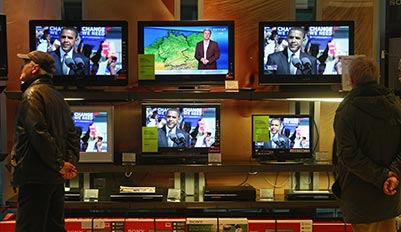The views expressed in our content reflect individual perspectives and do not represent the authoritative views of the Baha'i Faith.
 For me personally, one of the greatest Baha’i principles is the individual investigation of truth. Because the Baha’i Faith has no clergy, Baha’is believe that each person has the freedom, the responsibility and the duty to investigate truth for themselves – in other words, to decide on their own path in life.
For me personally, one of the greatest Baha’i principles is the individual investigation of truth. Because the Baha’i Faith has no clergy, Baha’is believe that each person has the freedom, the responsibility and the duty to investigate truth for themselves – in other words, to decide on their own path in life.
This guidance by Baha’u’llah has enabled me to view what I see around me in a new light. Baha’u’llah says:
O Son of Spirit! The best beloved of all things in My sight is Justice; turn not away therefrom if thou desirest Me, and neglect it not that I may confide in thee. By its aid thou shalt see with thine own eyes and not through the eyes of others, and shalt know of thine own knowledge and not through the knowledge of thy neighbor. Ponder this in thy heart how it behoveth thee to be. Verily justice is My gift to thee and the sign of My loving-kindness. Set it then before thine eyes. – The Hidden Words, pp. 3-4.
But how can we fairly and fully investigate reality when we’re completely immersed in the incessant and unending media cycle, when we’re bombarded with disconnected facts and opinion on a constant basis?
 The media and its views now dominate our culture, and in large part, form our individual and collective consciousness twenty-four hours a day, seven days a week. From news channels, commercials, TV episodes, magazines, newspapers, billboards, Facebook, YouTube and even before a movie at the movie theater, media never sleeps, takes no vacations and works every holiday. In this era, we can’t escape from advertising or rapid-fire news or the infinite range of information on any topic at our fingertips. Media constantly surrounds us, molding how we perceive our world and others, whether consciously or unconsciously – and making the independent investigation of truth both easier than it used to be, and harder than ever.
The media and its views now dominate our culture, and in large part, form our individual and collective consciousness twenty-four hours a day, seven days a week. From news channels, commercials, TV episodes, magazines, newspapers, billboards, Facebook, YouTube and even before a movie at the movie theater, media never sleeps, takes no vacations and works every holiday. In this era, we can’t escape from advertising or rapid-fire news or the infinite range of information on any topic at our fingertips. Media constantly surrounds us, molding how we perceive our world and others, whether consciously or unconsciously – and making the independent investigation of truth both easier than it used to be, and harder than ever.
For me, as a Baha’i, I put the information I receive from most media in the category of “the knowledge of thy neighbor”. Those words of Baha’u’llah help me understand that when I engage with media — or, really engage in communication with anyone — I am peering through the eyes of another. I try to remember that I must not allow that view to simply invade my consciousness or make a decision about it without my own independent investigation of that truth. In other words, I must seek my own knowledge by seeing through my own eyes. I must think for myself.
 But that isn’t easy. In most cultures today, we cannot avoid the media. And we certainly can’t avoid interacting with other people. So we will all inevitably encounter a multitude of opinions, which will give us the opportunity to use our own judgment, investigating those opinions and deciding independently whether or not we accept them. This task calls for good judgment, clear thinking and an open mind:
But that isn’t easy. In most cultures today, we cannot avoid the media. And we certainly can’t avoid interacting with other people. So we will all inevitably encounter a multitude of opinions, which will give us the opportunity to use our own judgment, investigating those opinions and deciding independently whether or not we accept them. This task calls for good judgment, clear thinking and an open mind:
Discover for yourselves the reality of things, and strive to assimilate the methods by which noble-mindedness and glory are attained among the nations and people of the world. No man should follow blindly his ancestors and forefathers. Nay, each must see with his own eyes, hear with his own ears and investigate independently in order that he may find the truth. – Abdu’l-Baha, Divine Philosophy, p. 24.
This principle can be a very valuable tool for day-to-day learning and spiritual growth. In all things, we can investigate by seeking out truth through our own eyes and not through the eyes of others. Of course, we can and should listen carefully to the opinions and ideas of others — but we should not instantly believe what we hear or read. Instead, we can find our own knowledge in each opinion, by asking questions of our mind and spirit to discern the truth in all things.
Read the next article in the series: Finding Your Own Truth
You May Also Like
Comments

















Hi to Clay